Budgeting
Budgeting and financial planning are crucial processes in event management, serving as essential indicators for assessing the viability of an event.
A well-planned budget enables ongoing financial monitoring, helps evaluate expenditure decisions, and identifies necessary income or funding sources. Use your event budget as a checklist to ensure important event components have been considered and/or organised. It is essential to figure out every moving part of your event that could incur a cost (expenditure) and how much money you require to pay for it (income).
Tips:
Assessing viability
- To determine the viability of your event, develop a preliminary budget that projects revenue, estimates expenses, and identifies the breakeven point. This assessment provides insights into the event's financial feasibility. Learn more about Event Feasibility.
Event budget categories
The expected expenditure items and potential revenue sources will vary depending on your event size and type. High-level categories may include:
Expenditure
- venue
- furniture and equipment
- staff and volunteers
- marketing and advertising
- signage and branding
- logistics (traffic management, ticketing systems, security, transportation)
- licencing and permits
- food and beverage
- health and safety
- entertainment and activities
- attendee experience
- event technology.
Income
- sponsorship
- funding/grants
- ticket sales
- registration/entry fees
- exhibitors/food vendors site sales
- merchandise sales
- advertising sales
- donations.
Building your budget
- Create a list of all expected expenditure items and potential income sources. Organise your budget by categorising expenditure items and income sources and create line items under each category.
- Allocate an estimated cost per expenditure item. Consider which of these are fixed costs (such as venue hire and permits) and variable costs (might change based on attendance numbers such as staffing and waste management).
- Allocate an estimated potential income for each expected source. Consider which of these are secured (income is confirmed and/or received) and unsecured (income that is anticipated but not yet confirmed).
- Obtain quotes where possible, ideally from a few different sources, so the budget is accurate, and cost-efficient options can be identified. Funders often require quotes when allocating grants.
- Consider negotiating with vendors or suppliers to potentially lower costs or secure discounts. Effective negotiation can help you stay within budget and get the best value for money.
- When receiving quotes, check if costs are GST inclusive or exclusive. If GST is not included, 15% will need to be added to the cost.
- Include two columns (‘Estimate’ and ‘Actual’) in your budget for the expenditure and income financials. As you spend money, enter it in the Actual column – this will help keep you on track. If you overspend on some items, you can look to make savings on items not yet purchased.
- Calculating estimated income from ticket sales can be tricky, particularly when you have different-priced tickets. Work out different scenarios for tickets sold. For example, if 100 tickets are available, create three columns in your budget spreadsheet: Optimistic (100 tickets sold), Likely (55 tickets sold), and Pessimistic (25 tickets sold). If your budget is formulated correctly, these three scenarios will help you understand likely ticket revenue for different possible eventualities.
Allow for the unexpected
- Set goals/targets and track your progress. A budget is a moving target, however it is important to set realistic goals and review and update them throughout the event planning journey.
- Include a contingency fund (at least 5% of your budget) for any unforeseen expenses. A contingency fund provides a safety net and allows you to handle unexpected costs without jeopardising the event’s financial stability.
- Clearly define which party (event organiser or performers) is responsible for performer travel and associated costs and include those expenses in the budget, if applicable.
- Include a ticket allocation for promotional activities such as competition giveaways or sponsor tickets.
Diversify your income
Consider additional sources of income outside ticket sales and sponsorship, such as:
- Merchandise sales – offer attendees/participants a souvenir or provide additional benefits to sponsors through event-branded merchandise. Be aware of branding changes; for example, if you buy three years’ worth of merchandise, consider whether your logo (or your sponsors) might change during that time.
- Exhibitors/vendor site sales – having hospitality or retail sites adds value to the event and provides a revenue source by way of a fee paid by stall holders.
- Funding and grants – prepare and apply for event funding and grants as they can help financially and assist with promotion of the event. Learn more about Funding and Grants.
- Donations – explore crowd-funding platforms to raise money for your event. While not a traditional source, individual donations are becoming more popular.
Useful Links:
Event budget templates
Event budgeting tips and guides
- Step-by-Step Guide to Creating an Event Budget (guidebook.com)
- The Complete Guide to Creating a Budget for an Event (Eventtia)
- cvent | Event Budgeting Guide (cvent)
- Event Budgeting: How To Create an Event Budget | (Eventbrite)
Event budgeting and forecasting tools
Accounting advice & software
- Accounting for non-accountants (Sport New Zealand)- PDF starting at the basics of accounting for a business or event.
- MYOB paid accounting software MYOB Accounting Software
- Xero paid accounting software Accounting software | Xero NZ
Have you considered?
- Have you factored GST in your expenses? Does your event need to be GST registered? Learn more about GST, Taxes and Levies.
- Do you need Event Insurance? Have you budgeted for this?
- Are employee contracts required for the different personnel involved within the event? Learn more about Employment agreements.
- What permits or licences are required for your event? Learn more about Licenses and Permits.
- Equipment Rental - Consider any equipment or technology rentals needed for the event, such as audiovisual equipment, staging, lighting, sound systems, or generators.

